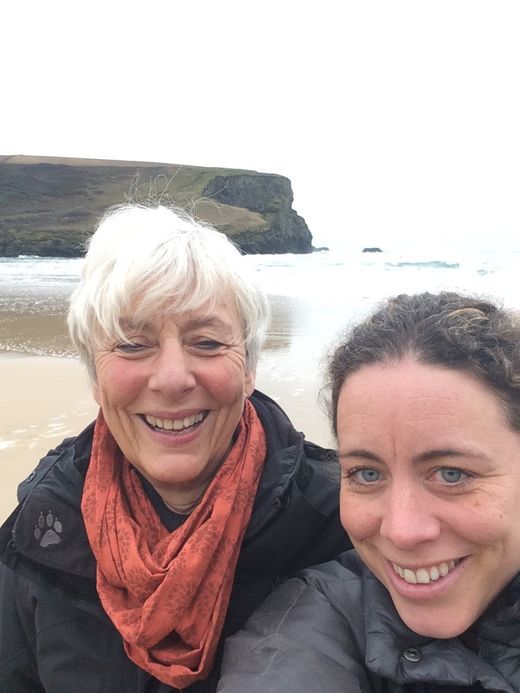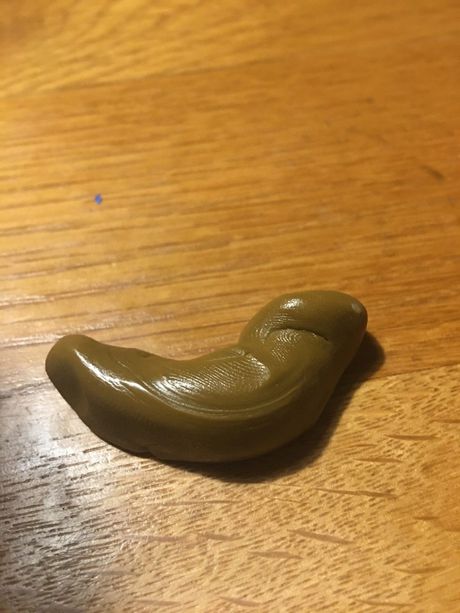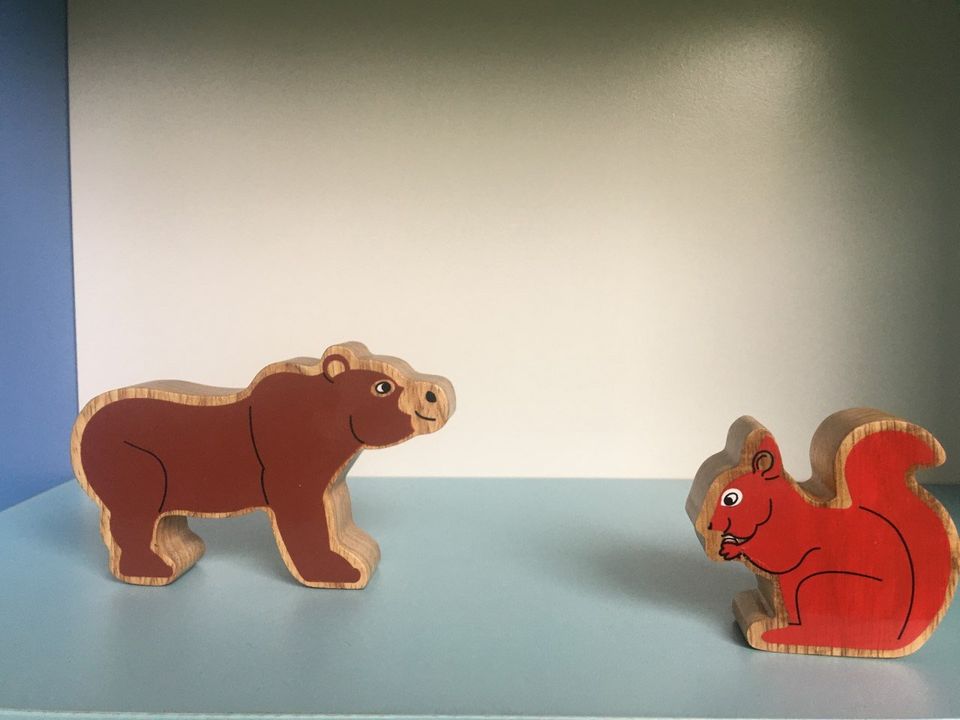Mother's Day: A time for reflection, mantras and parenting in a new era
Sarah Mundy • 22 March 2020
I’m sitting in a hotel, overlooking the sea with a gin and tonic. I have had a whole day to myself, with a quick swim at lunch, to think about what to write. It needs to be witty and helpful. I need to avoid psychobabble and connect with people. I have looked into the history of Mother’s Day, written about my experiences as a mum and daughter, and come up with a polished and very clever blog.
Tomorrow, I will have breakfast in bed (after a lie in) followed by a relaxing morning with the newspapers, whilst the children help tidy the house ready to go to school on Monday. I’ll have a quick surf and then be taken out for lunch, will have a massage thrown in and then a few glasses of wine (I won’t be designated driver). The children won’t argue and will be truly thankful for all I have done for them over the last decade.
From the ideal to the real!
I actually have a half an hour window to write this, within which I have to breast feed a toddler and get him to sleep (not quite following my bedtime routine advice tonight!). Extensive searching on interesting titbits about Mother’s Day won’t happen (the American incarnation of Mother’s Day was created by Anna Jarvis in 1908 – that’s all I know about it from a quick Google search!). It’ll be hard to come up with anything funny, or a clever play on words, due to the dull headache I have been sporting all week, alongside underlying anxiety about the next few months (home schooling, working, self-employment, mortgage breaks, parents being OK etc.). The boys will try their best tomorrow, although I will not get a lie in, there will be many arguments and we won’t be able to go to any hotels, restaurants or spas. They will not tidy the house nor be going to school on Monday.
I have decided to lower my expectations radically and try to focus on those special moments of connection – all too easy not to notice at times like these. I’ll embrace the traditional conversation:
“Mum, why is there a Mother’s Day when there is no Children’s Day?”
”Because every other day is a Children’s Day sweetie”,
“No it’s not, I don’t always get presents and you make me do things I don’t want to do”.
I’ll remember the enjoyable times I have had with my family over the last year and play the “yes no” game and “tennis-elbow-foot”. I won’t berate myself for their bad behaviour, and I won’t get involved in their arguments (depending on how heated they become!). I will remind myself that my children love me, despite the mistakes I regularly make, and that they show this in their own ways. I will try to embrace motherhood, and all it brings. I will be thankful that my own mum is still around and has been a wonderful parent to me all these years. I will be sad that I can’t see her because she is self-isolating.
Strange times
What a turn our worlds have taken over the last couple of weeks. Yes, it was always hard being a parent, trying to get it right, struggling with tricky behaviours, and always feeling like we could have done better. Now, the pressure is really on. I guess there’s not one of you reading this who isn’t already feeling the strain. Unfortunately, it is likely to get worse before it gets better. It’s going to be an exhausting few months.
Who would have thought our already busy (often unmanageable) lives would become more of a juggle? How are we going to extend our roles to teachers whilst also trying to ensure we stay sane? When are we going to catch up with friends, and get that social connection we really need to keep us going? How are we going to help our children understand what is going on? How are we going to stay at home for three months? Are we going to be able to get enough food? Are our own parents going to be OK? So many questions which we have never had to consider before, so few answers.
It really is true that times are unprecedented and we are going to have to be creative and resilient to cope. We will need to model to our children that, even when the going gets tough, we will manage. We can continue to be playful, accept the big feelings our children are having, help them understand them and share them. We will need to draw upon our communities, forge new connections, learn from others and take care of both our physical and emotional health.
My New Mantra
I am going to try to put all that I have learned about what helps children into place.
I am going to be as consistent, routined and nurturing as I can.
I will be honest and open with my children.
I will acknowledge how big the changes are for myself and my children, how unsettling things are and know that it’s OK to be wobbled by them.
I am going to notice the positives amongst a backdrop of sadness.
I am going to celebrate those little things in life.
I am going to spend less time worrying about the trivial, and more time living in the moment.
I am going to continue to make mistakes, probably more than usual.
I am going to accept that I am doing my best at a difficult time.
I am going to remember that being “good-enough” is better than aspiring for perfection.
I am going to (finally) declutter my house!
My first venture into preparing for home schooling was quite enjoyable – buying some Fimo took me right back to my youth. I’m looking forward to creating more with my children over the forthcoming months. (I’m not sure my first effort counts but I did find it pretty funny!). I think I’m going to learn a lot.
The Parenting Handbook…sooner rather than later please!
Despite so much financial uncertainty for all, we have raised almost £2000 over the first week of our Crowdfunding Campaign. I am so grateful for this support and just wish we could get the books out sooner – now is a time that they might be particularly handy. For this reason, I would like to make the Parenting Handbook (which helps you deal with tricky times in the early years – covering emotional and behavioural development and specific developmental challenges such as separation anxiety, healthy eating, bedtime routines, tricky behaviours and potty training) available more quickly.
Until the Crowdfunding comes to an end we can’t get the Parenting Handbook to print but if you are interested in receiving a pdf copy please contact us through our Crowdfunding page or email hello@parentingthroughstories.com. If you can afford it we would be grateful if you could pledge (even a small amount) but, if you’re really struggling financially, we will send it out to you for free. At times like this we need to focus on supporting each other as best we can.
How to support your children (and yourselves) during this time
I have already been putting some advice on our social media about helping your child understand and cope with what is going on in the world. Please feel free to add any specific questions you might have and I will respond as soon as I can. With my background in working with children who have experienced adversity the key points I would make is that you need to help them:
· Feel safe and contained (therefore very important that you work on feeling this yourselves)
· Understand what’s happening (in child friendly language)
“Hey Nudge, pre-school’s off
I really don’t see why,
I wanted to see all my friends
I can’t even say goodbye”
“Oh Bartley, it’s just so hard
There is a lot that’s new
We have to stay at home much more
Of course it’s confusing you”
“We need to stay away from people
For a pretty long time
It’s to stop an illness spreading more
You’re worried, and that’s fine”
Children are likely to make up stories about what is going on (which can end quite catastrophically) and often have many worries that they are not always able to talk about. I saw a little girl a few days ago who was full of anxiety – she told me how worried she was about her family dying and how her asthma made it likely that she would too. Helping her understand COVID-19 (as much as her parents and I could) opened up the possibility that this was not an inevitable (in fact very unlikely) outcome. The relief on her face was just wonderful to see.
Talking about changes (which children will be well aware of and probably very confused about – “How come I am not going to school when I haven’t seen anything change?") will not open a can of worms or make things worse. It will help them feel understood and more able to say how they are feeling – enabling them to express this through words rather than feelings. Try to use the PACE approach as much as you can (see previous blogs about that) and, if things are overwhelming for you and you feel disconnected with your child explain why and repair that rupture.
Most important in all of this though is you – if you look after yourself both you and your children will benefit immensely. Check your own feelings, share your anxieties with friends, try not to worry if you don’t understand your child’s work (I’ve already been banned from “teaching” maths), let yourself feel sad about the pandemic and the impact it is having on so many, eat healthily and exercise. Remember your child may regress and you may find it harder to parent with the added pressures. You won’t be alone in this and it doesn’t mean you are getting it wrong.
Dan Siegal talks about a “Healthy Mind Platter” which you might want to have a look at to think about what self-care entails https://www.drdansiegel.com/resources/healthy_mind_platter/
Speaking of which, my son is asleep, my work is done and, instead of checking for grammatical errors (sorry for any wordsmiths out there), I am going to have a bath and go to bed!
Let’s honour motherhood for all the things you have done so far, and for the love and support you are going to continue to give your children over the next few months. Please be kind to yourselves too.
Happy Mother’s Day all.
Sarah x
Dr Sarah Mundy
Creator and Author of Parenting Through Stories
You may find a document, 'FACE COVID' created by Russ Harris a useful resource. ‘FACE COVID’ is a set of practical steps for responding effectively to the Corona crisis, using the principles of acceptance and commitment therapy (ACT). You can view it here https://bit.ly/3bfQCBq

“Playing with our kids and really getting to know them is a little like scuba diving. From above the surface of the water, it’s hard to know what’s really happening down there under the waves. But when you take the plunge, you discover this whole other world: dynamic, real, fascinating, beautiful and full of life” (page 5) Why is play important? · Play is in children’s nature – it’s their first language and helps them learn with creativity, joy and connection · It builds crucial skills and reduces unwanted behaviours. Children build confidence, resilience and self-understanding through play. And with this comes a reduction in fighting, rudeness and tantrums (a reduction not an extinction – these are all part and parcel of childhood!) · It gives children appropriate ways to express and process their emotions and can be a powerful way to process what has happened and heal after difficult experiences. · It can help us connect with our children and enjoy being with them. It helps us understand their inner world and delight in them, building their self-esteem What if we don’t know how to play? (something I hear from lots of parents) · If we struggle to play it’s not our fault – our brains grow and change since we were children. · We have to relearn what it means to think and play like a child · For those of us who haven’t had playful parents when we were growing up it may be harder – but it’s never too late to learn What are the strategies that the authors talk about? This is a very brief summary – it’s well worth reading the book for a full exploration with lovely illustrations, example and science behind the strategies. · Think Out Loud o Why? This helps children understand their thoughts, feelings, wishes, intentions and desires more. When we do this it helps them learn that others can understand them and help them understand themselves. We help children to pay attention to what is happening inside themselves so they can develop positive, conscious, international responses rather than the default reaction with no awareness! o How? We do this by observing and narrating what we see in our children’s play, commenting on mental and emotional stages. We do this by observing and attuning, coming up with a hypothesis, saying it out loud (don’t worry if your guess is wrong – your child normally lets you know!) · Make Yourself a Mirror o Why: help children understand their emotional life and enhance their connection with and empathy for others. o How do we help children exercise the empathy muscle? (love this term!). Observe and attune into what your child is feeling with your body, face and voice, activate your child’s mirror system and remember empathy is mainly conveyed non-verbally (as well as verbally) · Bring Emotions to Life o Why: help children recognise, manage and express feelings. o How: observe and attune (as you may have noticed, we always start with this!) watching for emotional cues, act out your part adding emotions to your character (if your child invites you into their play) – alternatively, touch on emotions as the narrator of their play. · Dial Intensity Up or Down (this feels more about general parenting that play) o Why: this helps children regulate their emotions and actions when they are struggling and helps them learn that someone will be there for the when out of control. o How: Observe and attune – looking out for your child becoming dysregulated. Chase the why (I love this phrase) – see if you can work out what their dysregulation may be about? Look beyond the behaviour (if you want to learn more about this read Mona Delahooke’s work – it’s brilliant!). Dial the intensity up (through cooling things off ) or down (through starting low and going slow) Regulate and repair o Scaffold and Stretch: Why? Help children learn resilience in the face of difficult situations and show them others can show up when things get hard. How? This is about helping your child face something difficult in a low stakes way – through play. Firstly, observe and attune – to see if they may benefit from some support. Then offer scaffolding and stretching – it’s getting the balance right between not taking over when there’s a little struggle (my tendency!) and not letting them struggle so much they get stressed and don’t learn… Narrate to Integrate · Why? using stories (obviously my favourite thing!) to help children understand and deal with difficult situations. · How? Observe and attune (did you guess that?!), oscillate (between different halves of the brain – use logic and emotions), integrate and elevate. Set Playtime Parameters Why: boundaries teach children how to make positive decisions and help them feel safer. Children need limits, connection, structure and nurture How? Set some rules for play by taking care of yourself and of the space (try not to make it too chaotic!). Remember you are the pit crew not the race engineer (!). If you’ve had to set a limit then acknowledge the desire but keep the limit and offer alternatives. The authors set some good ideas for transition tips (as transition out of play can be HARD!). Finally, Tina and Georgie end with the importance of being playful outside of the playroom. For those of you that have read my parenting handbook and know about my love about the PACE model you’ll have guessed that I was pleased to see this in! Overall, a great read…well worth a delve
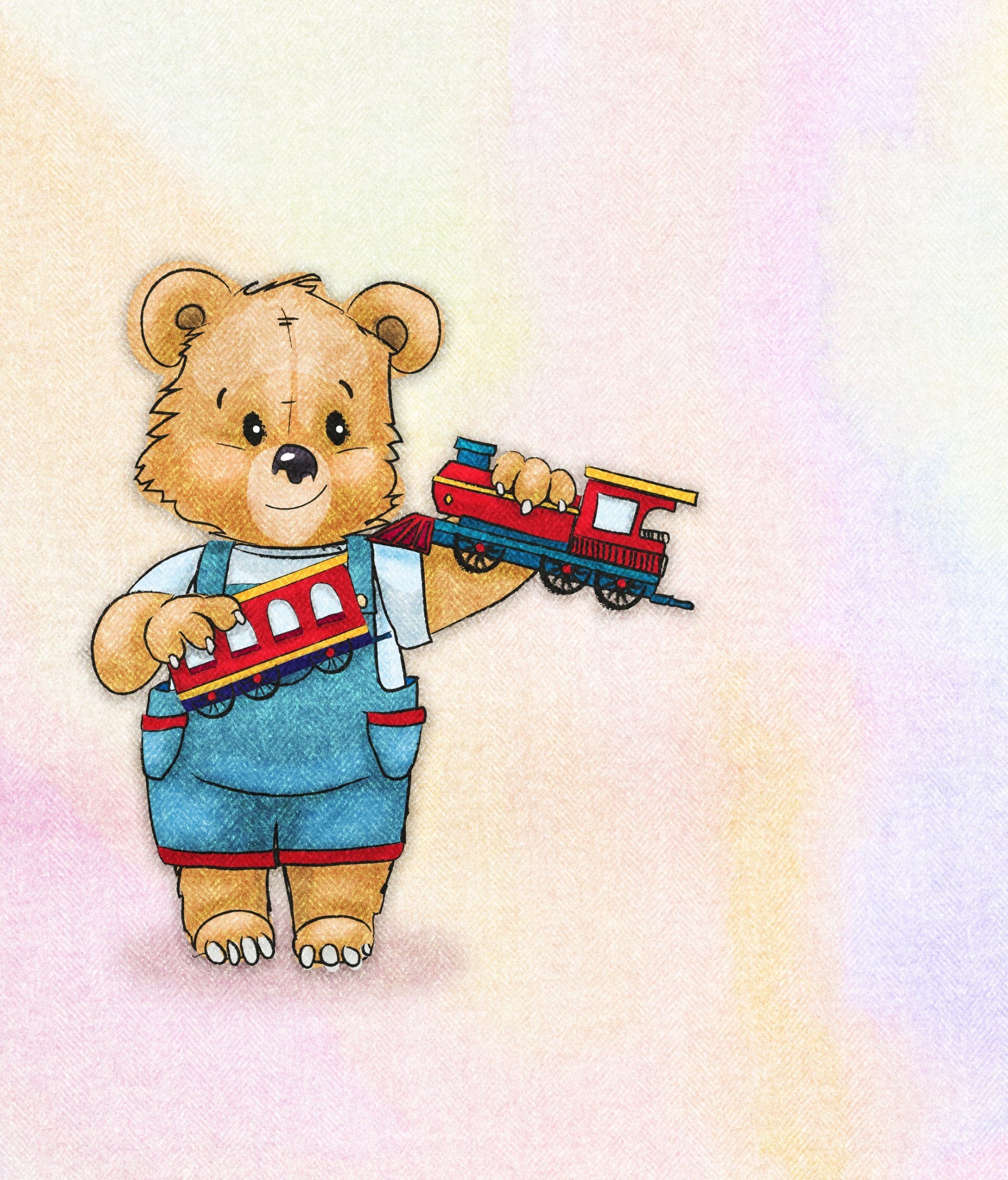
Little children can be so confusing (and confused!). Sometimes it’s hard to know what they need from you - a three-year-old demands that she wants her cheese in a big piece one day and then cries because it’s not cut up the next. She wants you to hold her hand to go to the toilet in the morning, but later gets cross when you try to do the same. We’ve all been there, faced with the - sometimes baffling - behaviours of the small humans that surround us, wondering how to respond to their inconsistent requests. Perhaps it’s reassuring to realise that these seemingly random behaviours are actually quite natural - stages through which each child progresses. In a bid to help you support your growing pre-schoolers more effectively, this blog talks about some of the things (there are many!) happening inside their heads and how you can support them with what’s going on. What’s Happening Inside a Three-Year-Old’s Brain?
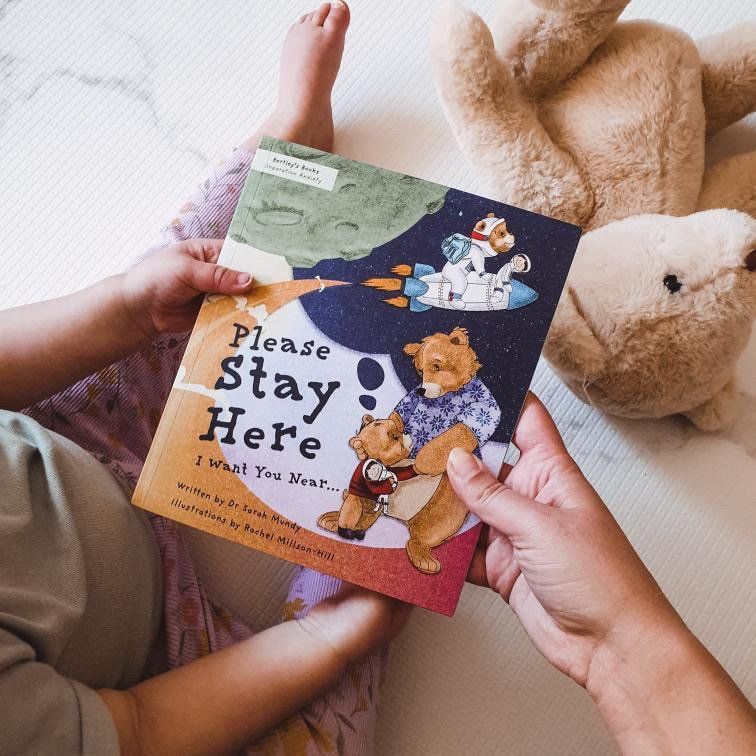
What was your favourite story when you were growing up? Was it a traditional fairy tale like Cinderella? Was it a popular picture book like The Very Hungry Caterpillar or The Gruffalo? Or was it a great adventure story like CS Lewis’ Narnia series or JK Rowling’s Harry Potter? Mine was Dogger by Shirley Hughes. Funny that the first book I wrote was about separation anxiety! For many of us, sharing and reading books was an important part of childhood, even more so before the advent of distracting screens and 24/7 streaming. I have fond memories of curling up in bed, half asleep, as my mum or dad read to me complete with silly voices and giggles aplenty. It's not just books though - you can make your own stories up too. I tell my little one a story about “Grizzly Bear with the Curly Hair” every night. It’s evolved to be a lovely family tradition, with my older children sometimes coming to join in. This is a wonderful way to stimulate both mine and my children’s imagination and what I most love about it is how the narrative is co-constructed – I am no longer allowed to be the sole story-teller, my son has to be part of it too! A 2018 research study found that nowadays only 30% of parents read to their children daily and I can’t help feeling that’s a bit sad. Especially given the many benefits of sharing story time go far beyond pure entertainment.
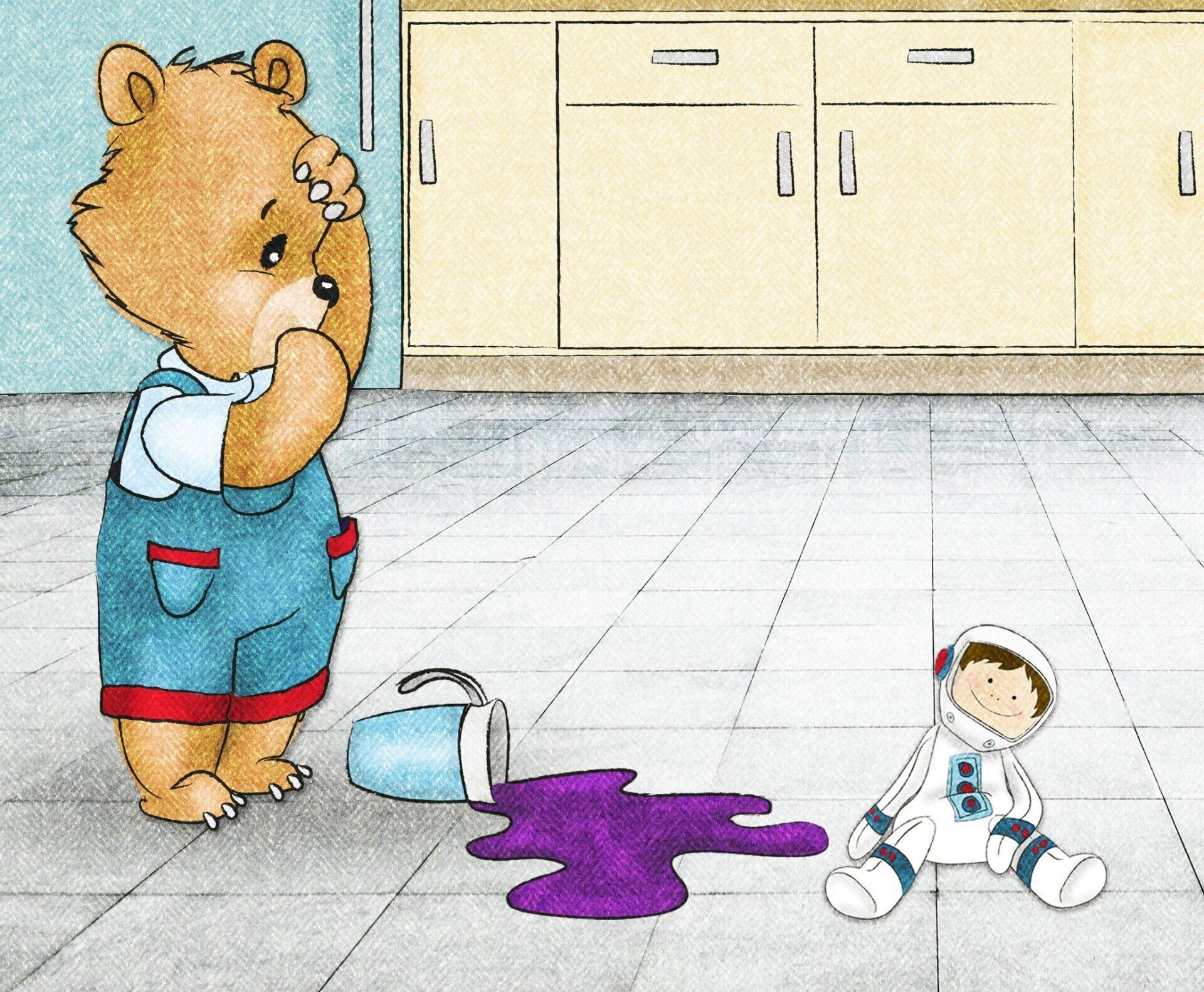
I thought I’d do a post on guilt and shame, feelings which are often used interchangeably but, from my understanding are pretty different. A quick whizz through some child development When we are little, particularly when we start testing the boundaries during toddlerhood, parents need to intervene to keep children safe. For those of you with little ones the word “NO” probably comes out more than you would like it to! This is a normal part of development – children exploring without an understanding of risks, and needing adult involvement to know when to stop. When a child is asked to stop doing something, which was most probably led by curiosity (can I touch that hot thing in the fire place?!), they are likely to experience shame. It’s not a nice feeling but is quickly regulated when a parent explains their motive and repairs the rupture in the relationship. “I’m sorry that I raised my voice, I know you were just exploring but it’s dangerous to touch fires” and so on. This gives the message that the parent is still there for the child and that they are accepted for who they are. The parent is showing them that their behaviour not OK, but that they are. This sort of parenting, when reasonably consistent, leads to a child feeling guilt rather than shame. “Oops, I shouldn’t have done that, how can I make amends?” (obviously not so clearly thought out for little ones but you get the gist). .
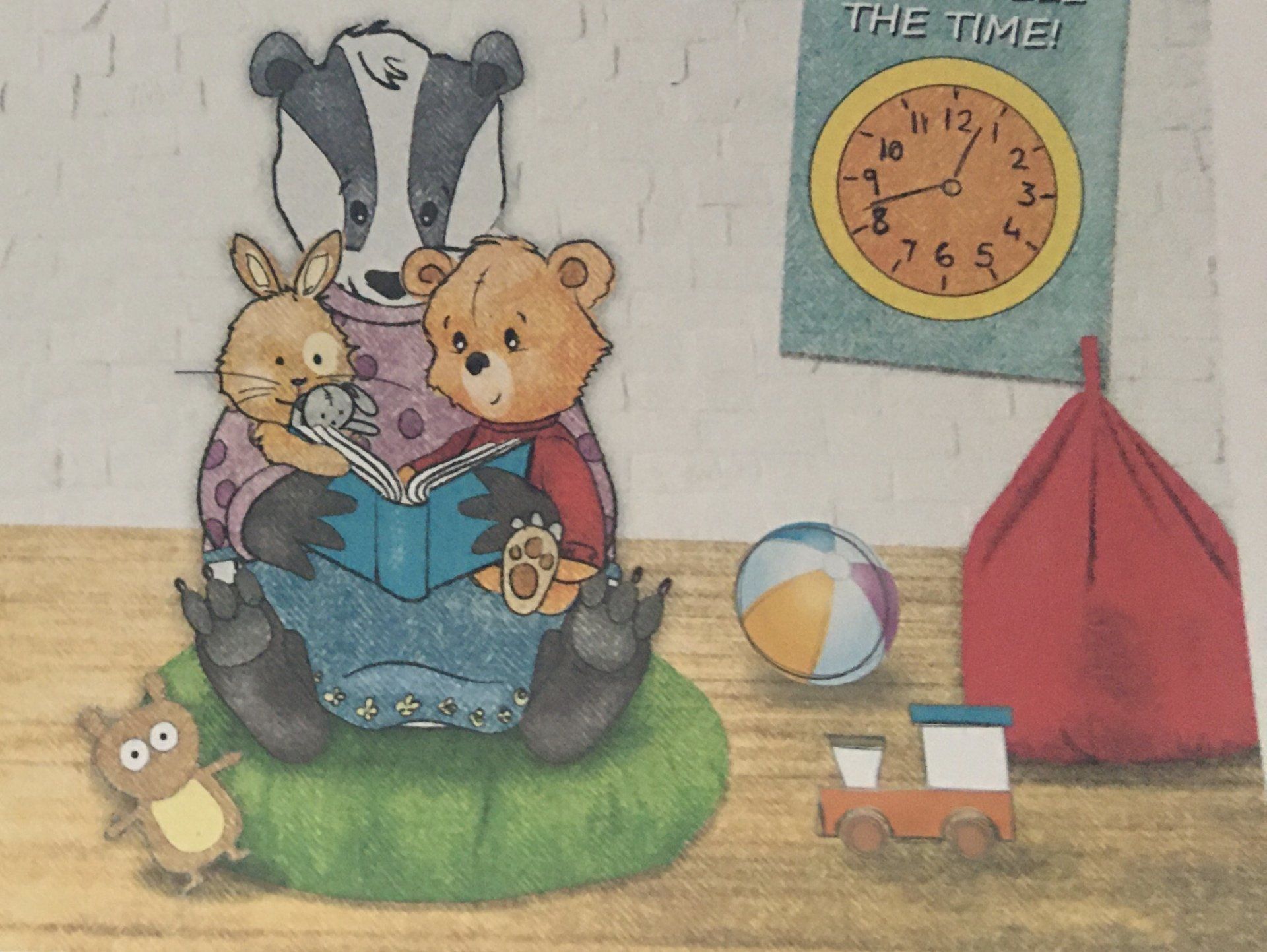
As a newborn, we look to our parents for everything. To feed us, to comfort us and to protect us. If they give us this safety and security, a healthy emotional bond develops. Research shows that this attachment relationship is a crucial building block of a child’s development, helping them to grow socially, emotionally, behaviourally and intellectually. But what happens when children begin to spend time with other caregivers, outside of the home and away from their parents? Do they develop similar relationships with the nursery staff, childminders or pre-school teachers that look after them? And what does this mean for you if you’re working in Early Years?
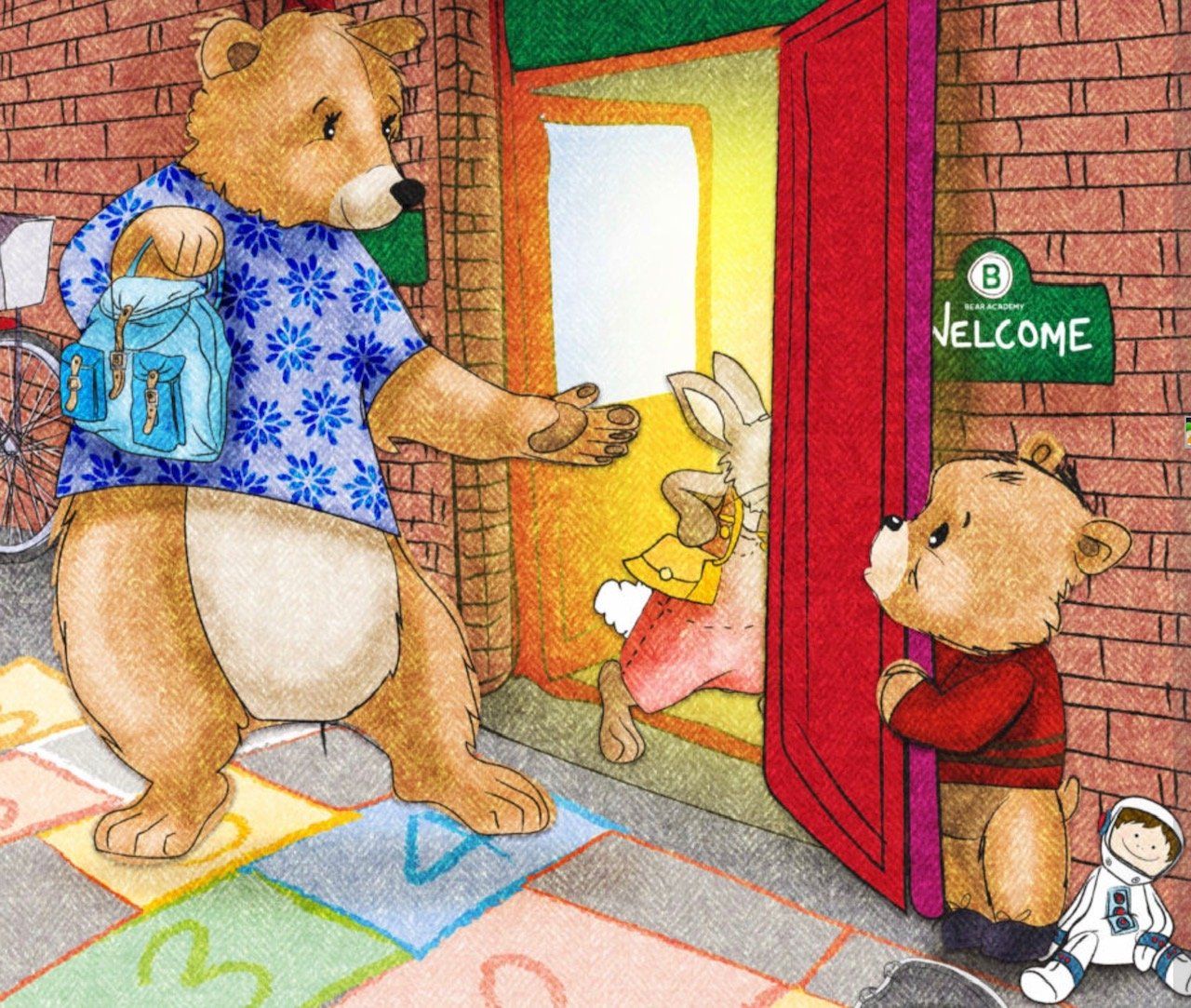
If you work in an early years setting, you’ll be quite familiar with the scene. You’re welcoming the children and getting them settled at the start of the day, checking in with them and showing them what activities you have planned. Suddenly, you hear shouting and crying as a stressed-looking mum tries to detach her small child from her leg. You feel for her, you really do; this child regularly clings to her on arrival - the anxiety is palpable. It’s distressing for everyone involved. For Mum, for the child, for the other children who are already in the room, and not least for you. You know from experience that they will settle down and be OK, but that doesn’t make it any easier in the moment. And you know, too, that poor Mum has headed off to work feeling guilty and upset, so it’s unsurprising when she phones 15 minutes later seeking reassurance from you. These experience are likely to be more pronounced at the moment, with children having fewer, if any, opportunities to practice separating from their parents, with collective anxiety at a huge level and with normal settling in sessions, with parents in the room, being unavailable. What is separation anxiety?
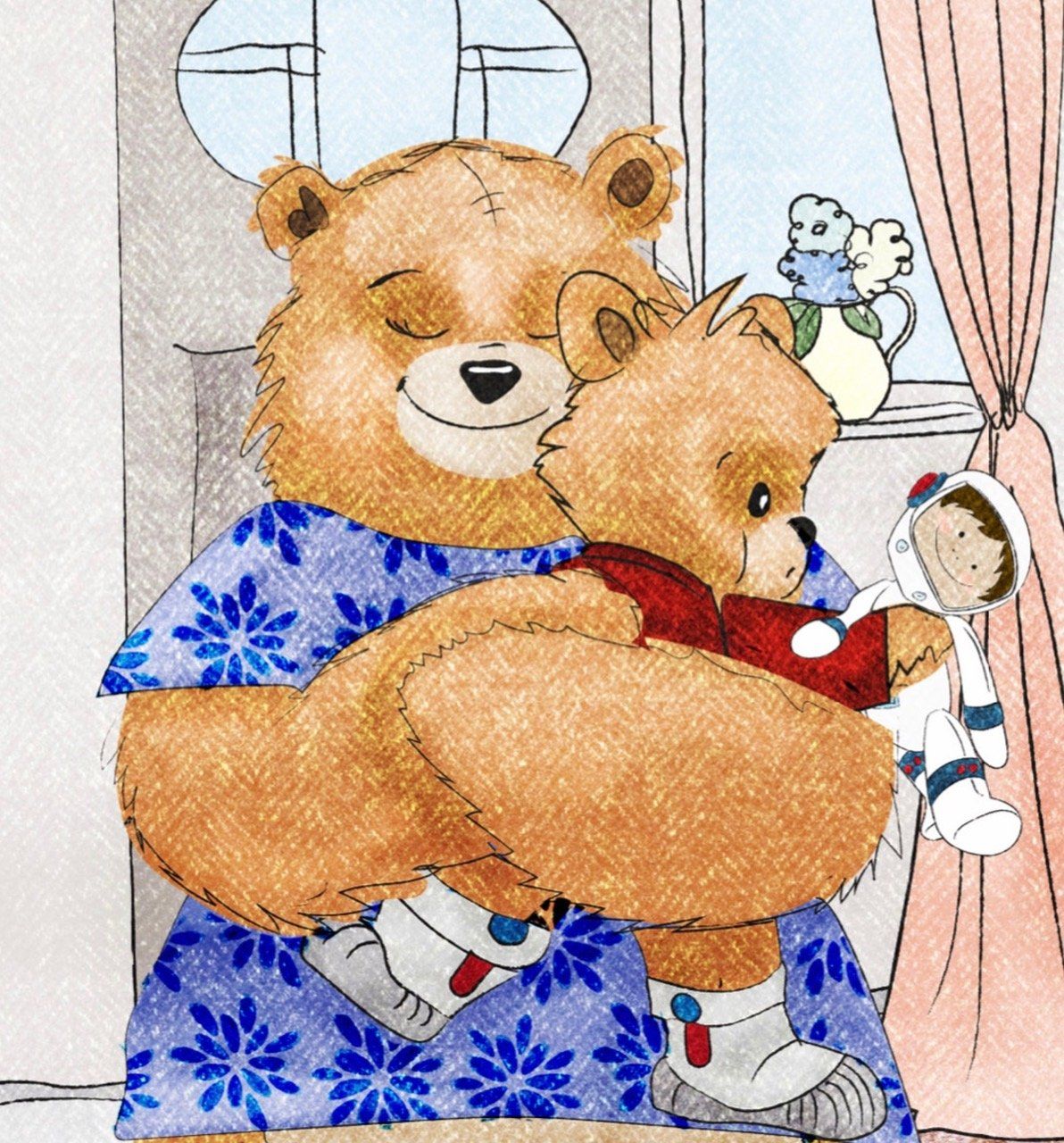
Where do I start? Attachment is a HUGE topic, with decades of research highlighting how important it is to a child’s development. But do you know what an attachment relationship actually is? And why it’s so important? Do you know what helps children develop more secure attachment relationships? With different approaches and a number of terms banded around it can feel so confusing. This blog addresses these questions and focuses upon ways that parents and educational settings can put attachment theory into practice. It is based upon my experience as a Clinical Psychologist. For over 15 years I have been drawing upon attachment theory to inform my work with parents and children. I’ve tried to ensure that my suggestions are user-friendly. As a mum of three I have learnt that theory does not always feel that easy to translate into practice. We can feel pressured to get it right all of the time (apologies to the clients I worked with before having my own children!). The beauty of attachment theory is that we don’t have to be perfect. Just good enough. As with anything scientific there can be a lot of jargon – I have put the key words in italics and tried to write with minimal psychobabble. I do hope you enjoy it! What is attachment (in a nutshell)?

In case you hadn’t noticed, Christmas is coming, and fast! It’s different this year, without nativity plays, big get togethers and light turn-ons. But it’s still happening, as both we, and our children well know! My three-year-old is already telling me that it is “Christmas tomorrow” on a daily basis (to be fair he also thinks it’s still Halloween so he’s not particularly accurate in his understanding of seasonal activities!). He is, however, starting to get excited. He’s remembering the elves escapades from last year, asking when they are coming back (I still haven’t found them in my cluttered house!). Why I added the nightly task of creating funny Elf scenes throughout December to the already huge list of Christmas jobs is beyond me, but at least he likes it! I was also quite proud of last year’s zip wire adventure.
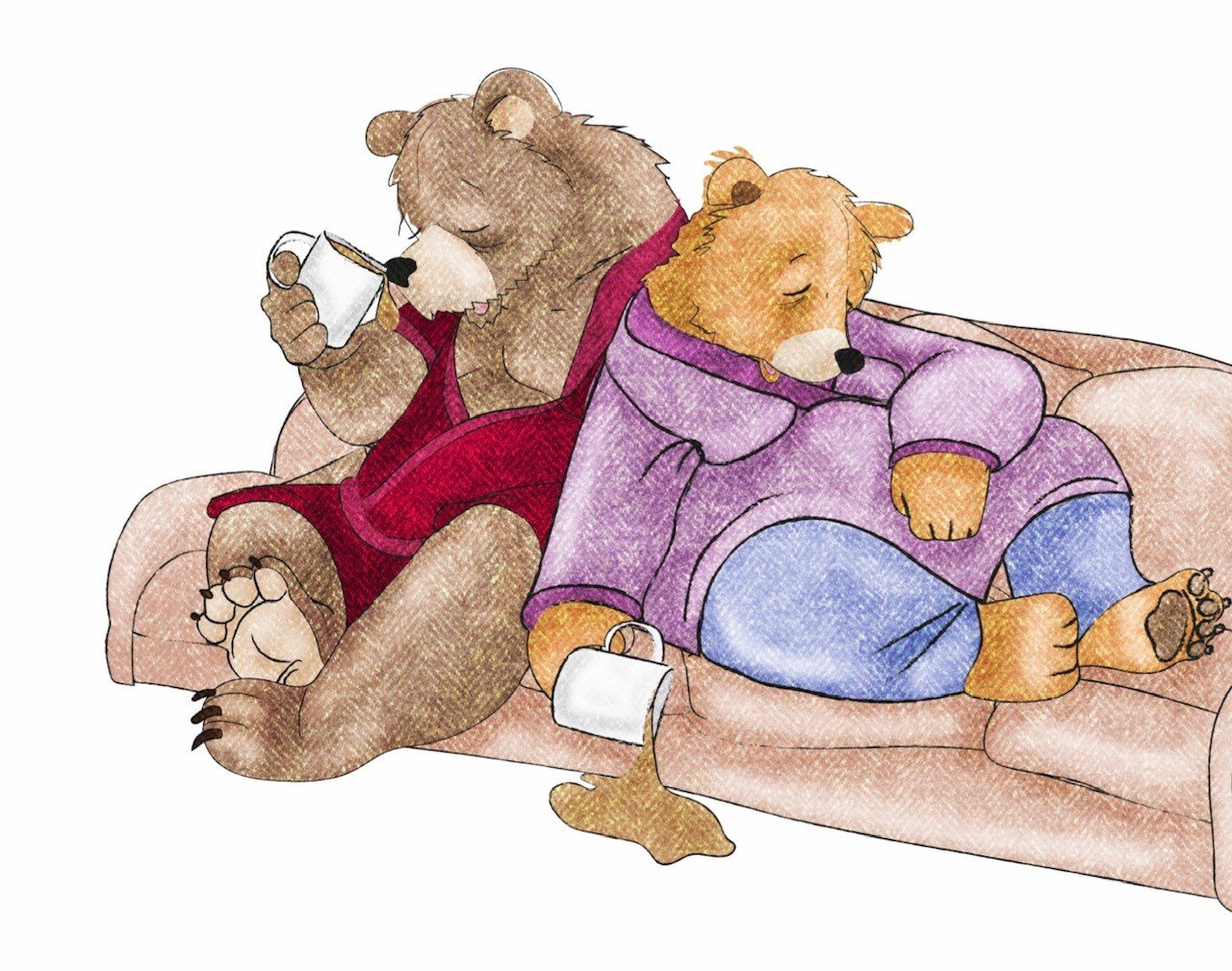
I know the gold standard for writing blogs is to deliver them on a fortnightly basis. I’ve been a bit remiss as this is my first one in months! What a better topic to start with then than why it is OK not to get things right all the time. Perfection is unobtainable, but it does seem to be something that we are pushed to do. The number of posts out there on mum guilt is astonishing. Over the last year we have been expected to juggle life in a way that does not seem possible. Many of us have been coping with (or trying to) being teachers, parents and professionals, three full time jobs all at the same time! This has left me wondering whether it’s actually possible to do anything well enough! And then along comes Christmas (gulp!). I’m hoping that reading this will leave you feeling happier with how you are doing as a parent, that you will realise that buying into the pressure to get it “right” is not helpful, and that you will learn that the attachment research highlights how we don’t need to be perfect to raise happy and healthy children. Children don’t need us all of the time. They need is a parent who knows they are good enough for them, accepts their foibles, makes and owns mistakes, and can manage their own emotional world. Forget Perfection - Strive for Good Enough Parents can feel a great deal of guilt around their work/life balance. Guilt can actually be a helpful emotion, allowing you to reflect on what is, and isn’t working. However, when you have little control over the things you want to change, it can feel overwhelming. The first thing you need to remember is that you are doing your best, and that is good enough. Interestingly, an article in the Economist reported that we spend twice as much time with our children as parents did 50 years ago (The Economist, November 27th 2017), suggesting that we are already much more active in our parenting than we used to be. “Good enough” is key to parenting. Research into attachment, which is important to children’s development, highlights how we should strive to be good enough, not perfect. A recent study on infant attachment found that parents need to be “in tune” with their babies about 50% of the time in order to develop secure attachment relationships (Woodhouse et al., 2019). So, if you’re getting it right about half the time, you’re onto something! Quality of Time is Far More Important than Quantity
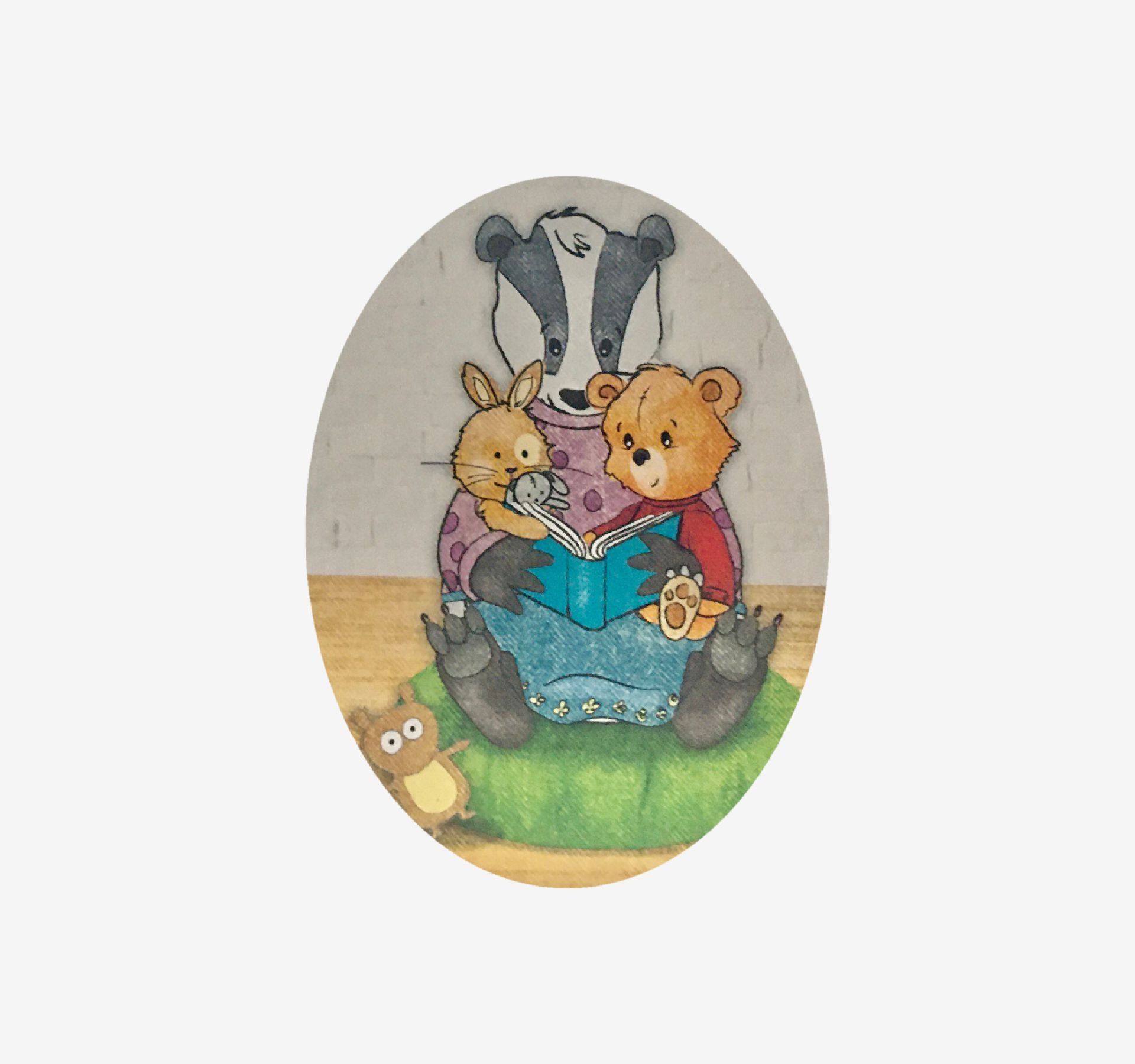
Well what a year it has been. Not one that any of us could have imagined or would have hoped for. All over the world we are having to adapt to the threat of Covid-19 and uncertainty about the future. Children have had prolonged periods away from education and, although some of them are back, this can be on and off as and when Covid-19 dictates. Helping children cope with these changes is key for the education sector if we are to support them to re-engage in learning. As a Clinical Psychologist I have been working with schools as well as children and families over this difficult period. I wrote this blog to summarise some of the ways educational professionals can support children through the increased anxiety they are likely to be feeling. Anxiety and Covid-19 A global pandemic is not good for anyone’s emotional wellbeing and is having an impact upon us all. Whilst we are all in very different situations, it is far from what any of us are used to and children will be noticing these changes. They are likely to be seeing more worried adults, hearing more stressful news and having little, if any, time with friends. Children have had to contend with new rules, a change in routine, a lack of control and a loss of relationships. Like us, they feel safe when things are predictable – something which has been absent for many months now.

